Last Updated on November 2, 2025 by Kevin Collier
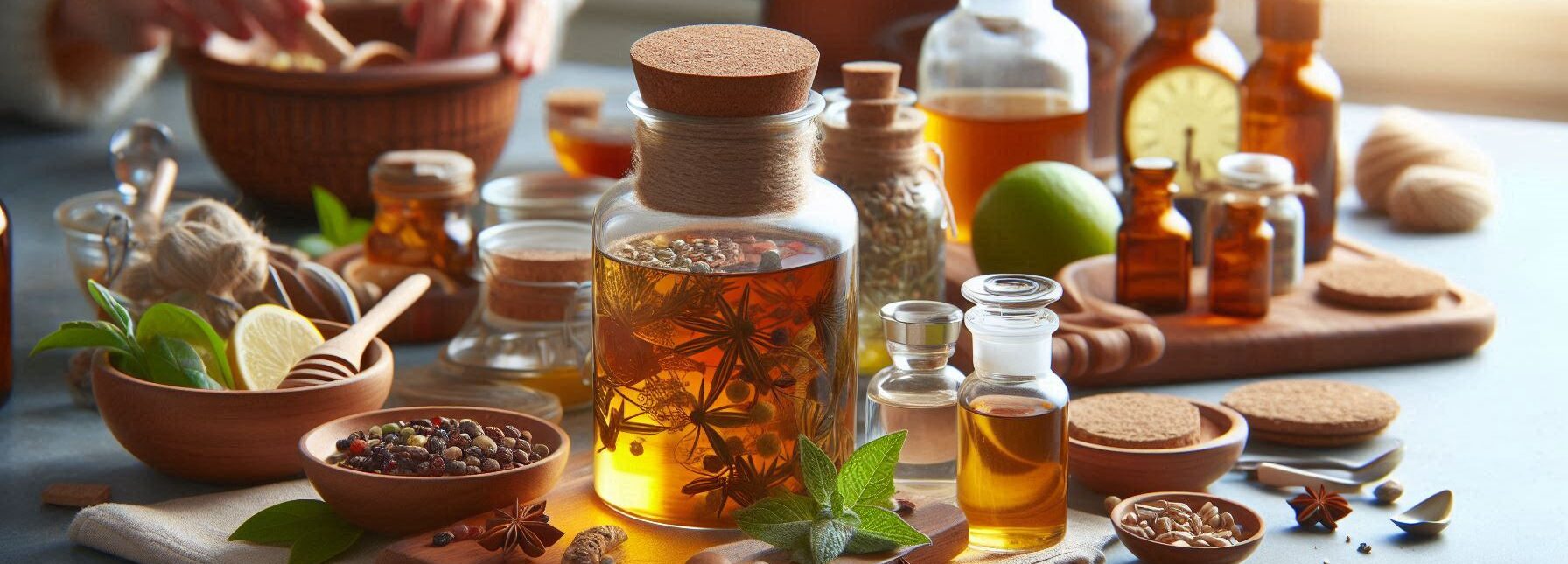
Top Takeaways and Key Concepts
- Use common kitchen herbs like ginger, basil, and chamomile to make healing teas.
- Combine beeswax, coconut oil, and essential oils to create simple skin salves.
- Apply peppermint oil to temples for quick headache relief and cooling effect.
- Incorporate raw honey daily to soothe sore throats and support immunity.
- Experiment with essential oils safely by diffusing, inhaling, or mixing with carrier oils.
Let's say you feel a little under the weather, and the closest pharmacy is miles and miles away. You’re stuck! Wouldn’t it be awesome if you had your own little potion-making kit right at home? It’s like finding treasure in your kitchen.
Who even likes those tiny pills anyway? They come with so many side effects, like a scary list of chores. Instead, how about making your own remedies? It sounds fun, right? Picture yourself whipping up natural solutions with just a few easy ingredients.
Please Note: This post may contain affiliate links. If you click one of them, we may receive a commission at no extra cost to you. As an Amazon Associate, I earn from qualifying purchases.
You might want to grab your mortar and pestle. Or maybe that blender sitting on the counter could use some action. They’re both great tools for blending things up.
Let’s talk about herbs. Ever heard of ginger? It’s like nature’s magic spice. If your tummy’s upset, a little ginger tea can help settle things down. It’s warm, it’s cozy, and it feels nice going down.
What about honey? Oh, sweet honey! It can soothe a sore throat better than singing your favorite song. Just a spoonful can work wonders. Mix it with warm water and a squeeze of lemon, and you’ve got yourself a soothing drink. Seriously, it tastes yummy too!
Don’t forget about garlic. It’s not just for pizza! Garlic has natural powers to boost your immune system. You can use it in cooking or even chew on a small piece. Just be ready for the garlic breath!
If you’ve got a headache, try peppermint oil. A dab on your temples can help a lot. It’s cooling and smells fresh. Instant relief, just like that.
Making these remedies feels like being a scientist in your own kitchen. It’s all about experimenting. You might not get it right the first time, and that’s okay. Just have fun with it!
Getting hands-on with nature can bring you joy. Plus, knowing how to make your own remedies is pretty empowering. You’ll feel like you can handle whatever comes your way. Who wouldn’t want that? Just think of your cozy little kitchen filled with smells of fresh herbs and spices. It’s like a magical potion lab! So, let’s get brewing and see what treasures you can create.
*** Shop for Survival Gear - Tools - Kits ***
Survival Gear - Bags and Backpacks - Knives - Boots/Footwear - Communication
Outdoor Cooking - Gloves - Hydration - Dry Boxes - Water Filtration Systems
Tents - Sleeping Bags - First Aid Kits - Multi-Tools - Flashlights - Fire Starters
Navigation - Survival Food - Night Vision - Headlamps - Stun Guns - Binoculars
The Power of Herbs
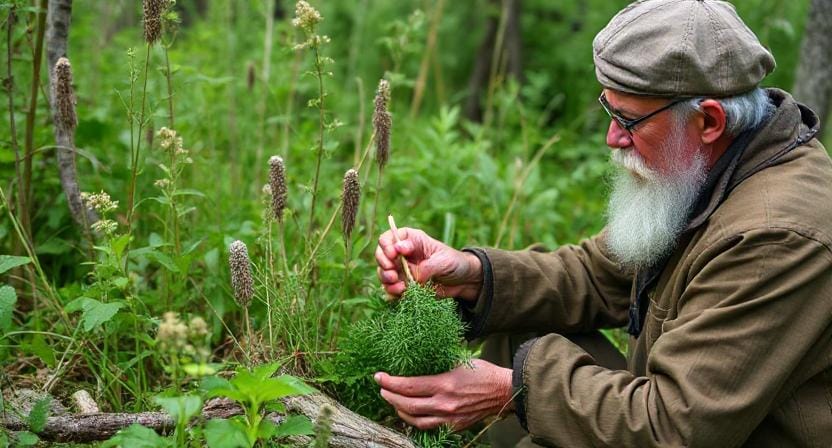
Let's start by talking about herbs. These small green things are nature's first medical cabinet. Have you ever used fresh basil in your spaghetti sauce?
It's like giving your taste buds a hug! But many herbs are good for your health in more ways than just making food taste good.
For example, chamomile. It's not just a terrific tea for relaxing after a long day (hello, Netflix marathon), but it's also great for settling an upset stomach or alleviating anxiety. It's almost like therapy to drink chamomile tea while watching squirrels squabble over acorns outside your window.
Then again, there’s peppermint. This herb is not just for fancy desserts; it can help with headaches and digestive issues too! Just crush some leaves and inhale deeply—your sinuses will thank you later. If only I could find an herb that would take care of my dog’s incessant barking…
Simple Salves for Skin Issues
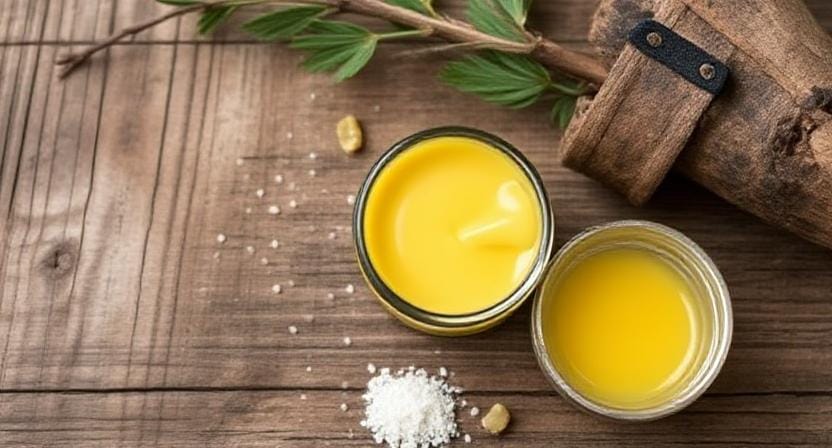
If you’ve ever had dry skin or pesky bug bites from camping trips gone wrong (and trust me, we all have), then making a simple salve can be your new best friend. All you need is beeswax, coconut oil, and whatever essential oils suit your fancy—lavender for relaxation or tea tree oil for its antibacterial properties.
To make this magical mixture, melt equal parts beeswax and coconut oil together until they become one gooey mess—kind of like that time I tried to bake cookies without reading the recipe properly.
Once the oils have melted, add the essential oils you choose and pour them into little containers before they harden into little pots of healing goodness.
Speaking of which, having these salves on hand when you're outside can keep you from becoming an itching monster after getting bitten by mosquitoes that seem to believe you're their personal banquet.
Herbal Teas: Nature's Comforts

Herbal teas are another fantastic way to address everyday ailments while enjoying something warm and cozy. Feeling under the weather? Brew yourself some ginger tea! Ginger has anti-inflammatory properties that may help ease sore throats or nausea—like when you've eaten one too many s'mores around the campfire.
Simply slice up some fresh ginger root (don’t worry if it looks weird; embrace the weirdness) and steep it in hot water for about ten minutes.
Add honey if you're feeling sweet—or if you're trying to bribe someone else into drinking it with you! You’ll feel better faster than you can say “I should probably cut back on s'mores.”
Honey: More Than Just Sweetness
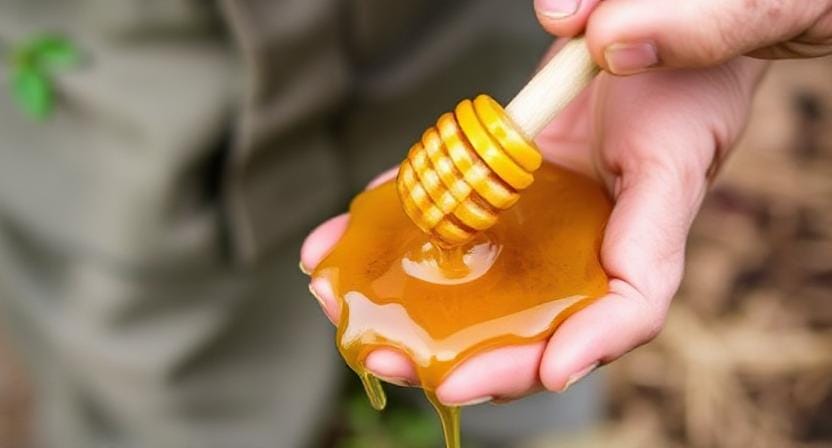
Let’s not overlook honey—the golden nectar that's not just delicious but also medicinal! Raw honey has antibacterial properties and can soothe coughs better than any over-the-counter syrup I’ve tasted (and trust me; I've tasted them all).
If you're dealing with allergies because pollen decided to throw a party in your backyard garden again this springtime (thanks so much nature), try mixing local raw honey into your daily routine—it might help build immunity against those allergens. Plus, it's a tasty addition to oatmeal or yogurt!
And honestly? It makes everything sweeter—even those moments when life throws unexpected curveballs at you.
Essential Oils: Your Aromatic Allies
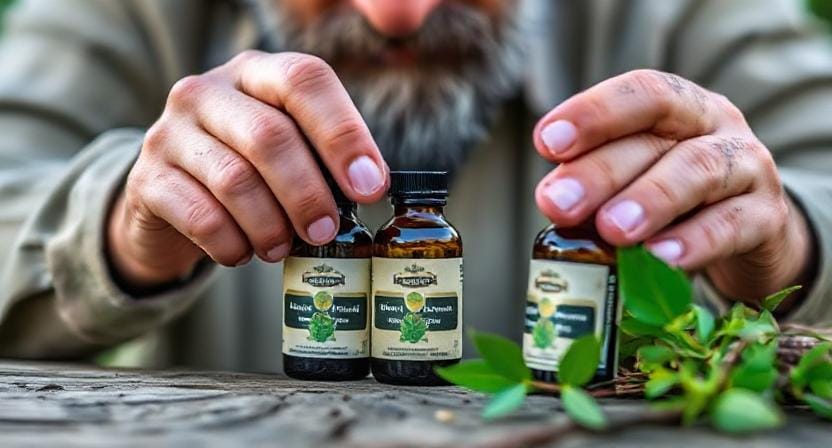
Essential oils deserve their spotlight too! They’re like magic potions but without the wizard hats—though if wearing one helps improve your mood while diffusing lavender oil…go right ahead!
You can use essential oils in various ways: diffuse them during yoga sessions (because zen is key), mix them with carrier oils for massages (goodbye muscle tension!), or simply inhale straight from the bottle when life gets overwhelming—a quick whiff of peppermint might be just what you need when facing Monday morning chaos.
Just remember: always dilute essential oils before applying directly onto skin unless you're aiming for spontaneous combustion—or worse yet—a rash!
Final Thoughts on Natural Remedies
It can be easier than you think to make natural cures. You don't need to have a lot of degrees or know about every single plant. Really! You just need a few simple materials, maybe items you already have in your home or garden.
Do you recall that cupboard that no one ever looks in? It could be hiding some valuable things! Things like honey, spices, and herbs can do amazing things. You might be amazed by what you can make.
Begin with tiny things. Do you have any basil? Not just for spaghetti! You can use it to create a wonderful cup of tea. Just put basil leaves in boiling water and let them sit. You have a drink that calms you down.
Have you ever had chamomile? It's great for unwinding after a hard day. Making tea will make you feel warm and relaxed. No additional training is needed!
Another fantastic tip is to add a little turmeric. It may help with swelling. You may make a tasty drink by mixing it with warm milk. It seems like magic how fantastic it can be for you.
Don't be too worried if things don't go exactly as planned at first. It's all part of the enjoyment. It could be that a medicine is too harsh or not strong enough. Just make a few changes! A little honey may make a big difference.
Think about having friends over. You might show off the treatments you created yourself. “Hey, this isn’t from a store! I made it right here at home! They'll think you're a health wizard or something.
Making your own medicines makes you feel good about yourself. You're having fun and taking charge of your health. In your kitchen, you'll feel like a little chemist! So, get those things and start trying things out. You never know what great stuff you'll find. It's going to be a fun little trip!
Frequently Asked Questions
Can ginger tea help with nausea or sore throat?
Yes, ginger contains natural anti-inflammatory compounds that may soothe nausea and mild throat irritation when brewed into tea.
What ingredients are needed to make a basic skin salve?
A simple salve can be made using melted beeswax, coconut oil, and essential oils like lavender or tea tree for added benefits.
Does peppermint oil work for headaches?
Applying diluted peppermint oil to the temples may create a cooling sensation that can reduce tension and mild headache discomfort.
Is raw honey helpful for coughs?
Raw honey has antibacterial and soothing properties and may help calm coughs when consumed alone or in warm drinks.
Can herbs like basil and chamomile be used in teas for relief?
Yes, many kitchen herbs can be steeped into teas that may support relaxation, digestion, or mild symptom relief.
How should essential oils be used safely?
Always dilute essential oils with a carrier oil before applying to skin, and test small amounts first to avoid irritation.
Can these natural remedies replace medical care?
No, homemade remedies are supportive only and should not replace professional medical diagnosis, treatment, or emergency care.
Suggested Resources:
Herbal Medicine: A Guide for Beginners
https://www.healthline.com/nutrition/herbal-medicine-guide
Natural Remedies That Work
https://www.webmd.com/health/ss/slideshow-natural-remedies
Essential Oils 101
https://www.mayoclinic.org/healthy-lifestyle/adult-health/in-depth/essential-oils/art-20454588

Kevin Collier is a seasoned survivalist and expert in prepping and homesteading, contributing to WiseSurvive.com. With a deep-rooted passion for self-sufficiency and outdoor survival skills, Kevin shares practical advice, strategies, and resources to help individuals prepare for any challenge. His informative articles cover a range of topics, from essential survival techniques to sustainable living practices, empowering readers to thrive in any situation. Whether you're a novice or a seasoned prepper, Kevin's insights will inspire you to take charge of your readiness and build resilience for the future.




